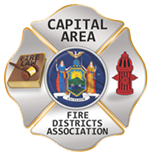By: Gary Ludwig
Imagine you’re in command of a fire scene. There are several chiefs in various roles, such as operations and safety. You’re managing multiple companies inside the building and exterior. The fire is not yet under control, and the company assigned to do a primary search has not completed it yet.
Suddenly, the attorney for your fire department jumps into your command car and starts telling you how to manage the fire. The attorney is not a firefighter, has no fire background, and has not even taken one of those “a day in the life of firefighter” academy classes – you know, the ones where we give politicians and journalists some bunkers, an air bottle and a mask, so they can feel the heat of a burn barrel in the center of a burn building while breathing through a facepiece.
You have several options. You can laugh at your attorney or you can tell them in the most pleasant or unpleasant language to get out of your car.
Now, let’s reverse the scenario: Does your attorney or human resource (HR) director laugh at you when you try to handle a personnel or legal issue without you seeking their advice? I would venture to say they do – or at least maybe they shake their head. But it would be no different than them trying to tell you how to run a fire.
CONSIDER A COMMON PERSONNEL SCENARIO
You receive a complaint that one of your firefighters has written several negative comments on Facebook about those who protested and/or caused civil unrest last summer. The firefighter did not identify himself as a firefighter with your department and there are no pictures on his Facebook page associating him with your department.
How would you handle it as the fire chief? Would you tell him to delete the post? Would you ignore it? Would you take some other action?
If you were to pose this question to 100 fire chiefs, you would receive many, many varied answers. Some chiefs would tell the firefighter to delete the posts. Others would tell him to delete the posts and would discipline him. Other chiefs may terminate the firefighter’s employment. Other chiefs would ignore it. Still other chiefs would defend the posts if questioned by a citizen or a journalist.
This situation is complicated, and if not handled properly, you could find yourself in court facing a First Amendment lawsuit.
THE GIFT OF TIME
First, as I like to say and teach my chiefs and junior officers, you are not on an emergency scene. Therefore, you do not have to make any snap or misinformed decision – or even take any immediate action. Unlike a fire scene where immediate decisions are necessary, you have the luxury of discretionary time, and you should use it before you make a mistake.
So, what should you do?
This where the most undervalued members of your team come into play – your attorney and/or HR director. Just like your attorney trying to tell you how to run a fire, you should not take any action until you have spoken with your attorney or HR director about the complaint.
Even if you receive a media inquiry, it’s OK to use a simple answer like you are looking into the matter and will get back to them. Saying “no comment” does not sound good and raises suspicions that you are trying to hide something.
ENGAGING THE EXPERTS
Before calling your attorney and/or HR director, you should gather all the facts. They are going to ask a lot of questions. Be prepared to answer them to the best of your ability.
Next, follow their advice. They are well versed in employee law, and they know the landmines. Chances are, you may be knowledgeable, too, but you could step on one landmine that you did not know about.
Tips: Have your attorney and/or HR director on speed dial. After all, you should be in contact with them for a variety of issues, not only for First Amendment complaints. This would include any time one of your employees is arrested; you are served with a union grievance that may go to arbitration or a court after multiple steps; or you are served with an administrative complaint from the Bureau of Labor and Industries (BOLI), the Equal Employment Opportunity Commission (EEOC), the U.S. Department of Labor, the Occupational Safety and Health Administration (OSHA), the National Labor Relations Board (NLRB), or similar agency. You should contact your attorney and/or HR director when you are served with a lawsuit from an employee alleging work-related claims or when an employee complains of being mistreated in the workplace. The phrase “hostile work environment” should always get your immediate attention. Lastly, you should always consult with your attorney and/or HR director whenever you are considering terminating the employment of one of your firefighters or staff.
HERE TO HELP
You’ll never see your attorney or HR director on an emergency scene, but there is no doubt they can be one of the most valued members of your team when they give you advice that can save you money, avoid damage to your fire department’s name and reputation, and maybe even prevent someone from being injured.
